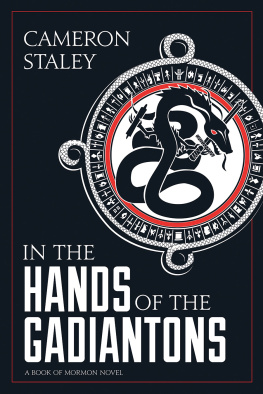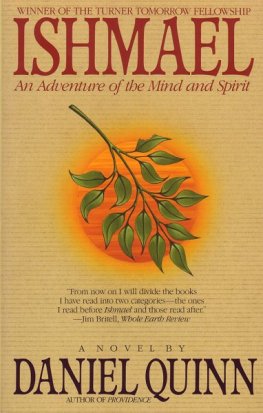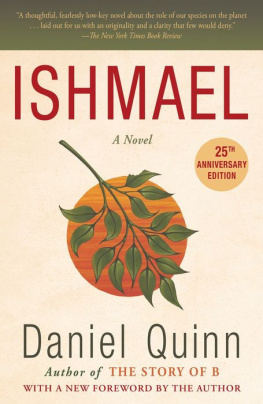Writing this novel was so rewarding and fulfilling and only made more enjoyable by the support and contributions of friends and family. I am forever grateful for the love and patience from my wife, Nicole, who granted me the freedom to take time away from our family to work on this project. My parents are consistently my greatest fans. A special thanks to my mother, Carolyn, for her valuable artistic descriptions of the landscape and characters in the book.
I deeply appreciate the thoughtful critiques from my friends Tracie Hitter, Angie Reyburn, Cliff Rone, and Jennica Holt. I am blessed to have many other friends who were gracious in sharing their ideas and encouragement as this novel took form. I am also very fortunate to have met Heather Moore at a writers conference. Her detailed editing, guidance, and introduction to Covenant Communications was instrumental in moving this book toward publication. Finally, I am grateful that the team at Covenant would take a chance on me and this story of the Lamanites.
While researching and writing In the Hands of the Gadiantons , my love for the Book of Mormon and especially the Lamanite people grew tremendously as I became invested in their stories that came to life for me. My hope for you as you read this book is that you will develop personal connections with the people in the Book of Mormon and feel of their testimonies. I am eternally grateful for their sacrifices and diverse examples.
Preface
For generations the ancient inhabitants of the Americas were blessed by prophets who testified of Jesus Christ. In the Book of Mormon, the Nephites are generally considered the more righteous of the two seminal nations, the Nephites and the Lamanites. Peace between the descendants of Nephi and Laman was infrequent for most of their millennial history. Although the people of Nephi were led by many inspired prophets, the Nephites did not remain faithful.
The Lamanites lived without the benefit of the brass plates. For much of their history, no messengers were sent to teach them the gospel. The leaders of the Lamanites passed down their hatred for the Nephites for centuries, leading their people to revile against the Nephites in seemingly endless conflict. And yet, we are told by several Nephite prophets that the Lamanites had become, the more part of them, a righteous people, insomuch that their righteousness did exceed that of the Nephites, because of their firmness and their steadiness in the faith. (Helaman 6:1; emphases added)
The exceeding righteousness of the Lamanites was often matched by the vehement wickedness from the Nephite dissenters. These dissenters had been taught the gospel and rebelled against the Lord. These Nephites proved to be a tremendous stumbling block for others, especially those who had not heard the gospel. Many of the Lamanites had to look past the wickedness of the Nephites to recognize the voice of the Lord from the prophets.
The people of Laman associated with the people of Nephi and at times lived among them peacefully. The Lamanites even produced their own great prophets. Samuel the Lamanite testified of the coming of Jesus Christ and prophesied about many signs that would signify His arrival. The Lamanites were a proud civilization who honored the traditions of their fathers. Many of them also converted to the faith of the Nephites and accepted conflicting cultural influences. Astonishingly, the people of Laman overcame their disadvantages and became more righteous than their brethren the Nephites.
We have one record written by the Nephite people, compiled by the hand of Mormon and his son Moroni. But what about the record of the people of Laman? What would the silent history of the Lamanites reveal? As I considered the neglected perspective of the Lamanites in the Book of Mormon, I was struck by the following passage in Helaman:
And it came to pass that there were many of the people of Ammon, who were Lamanites by birth, did also go forth into this land.
And now there are many records kept of the proceedings of this people, by many of this people, which are particular and very large, concerning them.
But behold, a hundredth part of the proceedings of this people, yea, the account of the Lamanites and of the Nephites, and their wars, and contentions, and dissensions, and their preaching, and their prophecies, and their shipping and their building of ships, and their building of temples, and of synagogues and their sanctuaries, and their righteousness, and their wickedness, and their murders, and their robbings, and their plundering, and all manner of abominations and whoredoms, cannot be contained in this work.
But behold, there are many books and many records of every kind, and they have been kept chiefly by the Nephites. (Helaman 3:1215; emphases added)
There were many records kept by many of this people, which could not be compiled into one book because of their enormity. We learn that the records were chiefly kept by the Nephites. This demonstrates that the Lamanites must have maintained records of their lives as well. Additionally, we are told that Amulon, one of the priests of King Noah, gained favor in the eyes of the king of the Lamanites (Mosiah 24:1). King Laman instructed Amulon and his brethren to teach the Lamanites the language of Nephi. The Lamanites were described at that time as a people friendly one with another; nevertheless they knew not God (Mosiah 24:5). Amulon taught the Lamanites that they should keep their record, and that they might write one to another (Mosiah 24:6).
We have been counseled to liken the scriptures unto ourselves. Nonetheless, it is challenging to disconnect from our worldview and see through the eyes of another. It is easier for many of us to relate our lives to the Nephites. But what about the Lamanites? What essential messages are we to construe from their lives? The Lamanites represent those who come from different cultural backgrounds, family traditions, and belief systems. It proves difficult for each of us to understand how the gospel message, and even our own behavior, is viewed through the lens of another outside of our cultural heritage or religious faith. Those, from diverse backgrounds, who embrace the message of the restored gospel have a unique and valuable story to share.
The Book of Mormon is filled with numerous inspirational accounts from those who valiantly fought for their religious liberty and the lives of their families. Countless individuals engaged in brutal battles, and tens of thousands witnessed the atrocities of war. Those events would have taken a substantial emotional toll on the inhabitants in the land. Surely they experienced extreme hardships as they grieved for the loss of loved ones. In contrast, there were many wonderful events and miracles that would have uplifted the hearts and souls of those who lived in the ancient Americas.
The challenges encountered by the people in the Book of Mormon parallel the difficulties we face today. The Lamanite and Nephite nations struggled with issues of racial discrimination, wars and contentions, religious freedom, and corrupt government. There are life-altering messages written in the scriptures that are meant for our time. The Book of Mormon details the accounts of individuals who walked this earth, experienced joy and sorrow, and had the gospel of Jesus Christ among them.
In the Hands of the Gadiantons takes place in the land of Zarahemla shortly before the birth of Jesus Christ. For years the land of Zarahemla witnessed many battles between the Lamanites and the Nephites. Eventually, the sons of Mosiah journeyed to the lands of the Lamanites and converted thousands of Lamanites to the gospel. These Lamanites joined with the Nephites in the land of Zarahemla. Although many Lamanites were converted, the more numerous part of them continued in conflict with the people of Nephi.













